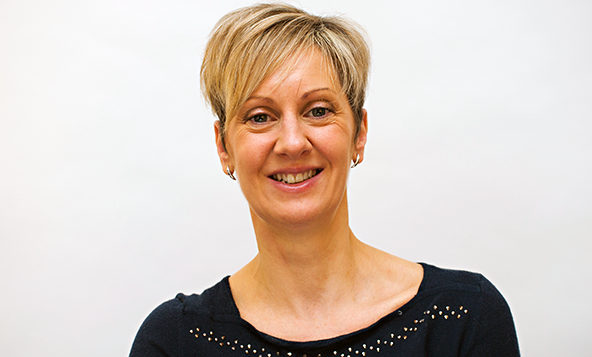It is not always easy but our capacity for change is much higher than we think

Responding to COVID-19: Interview Series
MHE aims to provide helpful information to as many people as possible on how communities, including experts by experience, service providers, mental health leaders, governments and policy makers, researchers and others, can support people efficiently through the current crisis and beyond.
In this interview series with MHE members and partners, we discuss the impact of the pandemic on their lives and work and which measures they are taking or can be taken to cope with the situation. These testimonies underline the importance of putting mental health higher on the European agenda, during the crisis and afterwards, while offering a personal side and shared expertise for people within the mental health sector, decision makers, and anyone interested in improving mental health for all.
Interview with Louise Christie, Acting Director of the Scottish Recovery Network, Scotland
What impact has the COVID-19 pandemic had on your organisation until now?
Scottish Recovery network is a small national organisation promoting and supporting recovery approaches. Much of our work was focused on bringing people together at conversation cafes and other events to discuss recovery, learn together and develop and plan new initiatives. This work ended suddenly and our focus has been on maintaining contact with our informal networks through social media, our website, regular emails and phone calls and zoom meetings. In addition, we planned and delivered a programme of online conversation cafes which brought people together to discuss staying well during the lockdown. Moreover, we supported partner organisations across Scotland to deliver their recovery projects and approaches using online platforms
How have you arranged things in order to safeguard your employees’ physical and mental health?
We are a small team of six and are all working from home. We have team meetings twice a week and catch ups and have used a project team approach for all our work. This has reduced isolation and helped us all to feel connected.
With the gradual lift of restrictions, how is your organisation adapting to the new reality?
We have been using the time to develop new resources to support recovery activities and to assist groups, organisations and services to develop a blend of face-to-face and online approaches to meet the needs of different groups as the restrictions are lifted. We have also been collecting experiences of delivering peer support online with a view to sharing them more widely and providing support and guidance in the future. This will include developing our Peer2Peer training resources to be delivered online or using a blend of face-to-face, self-directed and online learning.
What would further help your organisation, especially in terms of investments and policy support?
Our funding is currently only until 31 March 2021. We hope to get a longer-term commitment (i.e. three years) to funding our activities before then. We are advocating for a stronger commitment to recovery and lived experience in government policy. This crisis is an opportunity to effect positive changes in the way mental health is viewed and supported. For us this would include a more explicit acknowledgement of the reality of recovery in Government policy, messaging and service provision and a commitment to listen to and act on lived experience including investment in new peer support roles and services.
What are your key learnings from this situation?
That we, and others, can adapt and change. It is not always easy but our capacity for change is much higher than we think. There are many ways to engage with people and while we look forward to meeting people face-to-face we will also continue to offer online opportunities for those who prefer this.
Which positive changes has the pandemic brought for the mental healthcare sector?
In many areas NHS mental health services have been reduced on severely restricted but third sector and community-based services and activities have flourished. This has led to a range of new approaches including more peer support online, telephone peer support and peer-led learning. The alternative to medicalised, difficult to access services has developed much more quickly than before COVID-19. We now have more evidence of the ‘new future’ for mental health and wellbeing and increased confidence that the third sector can deliver effectively.
Stay connected
Get our latest news, personal stories, research articles, and job opportunities.